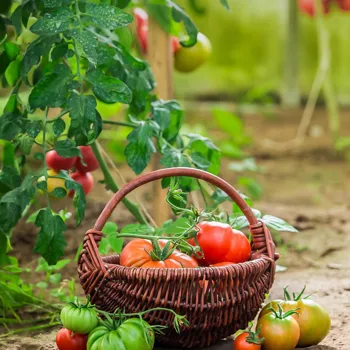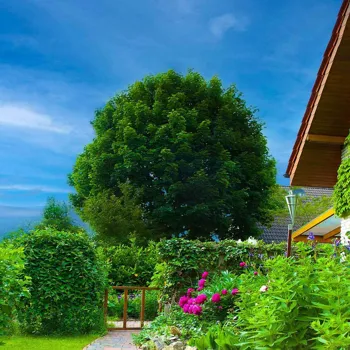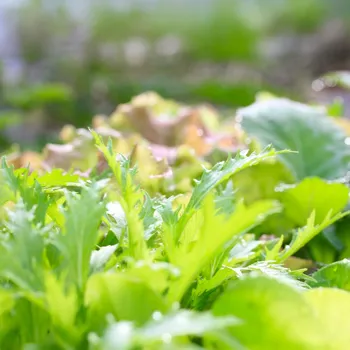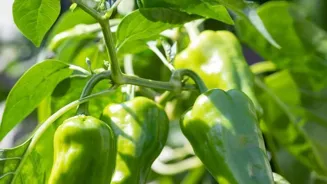Discover the joys of home gardening! Dive into the benefits of growing your own vegetables for a healthier, tastier lifestyle
In the hustle-bustle of modern Indian life, imagine stepping out into your own
little green haven, a personal garden brimming with fresh, vibrant vegetables. Seems like a dream, right? But what if we told you it’s a dream well within reach?
Growing your own vegetables isn't just a hobby; it’s a pathway to a healthier, happier, and more sustainable lifestyle. So, ditch the supermarket queues and embrace the joys of home gardening! Let's explore the fantastic benefits that await you when you cultivate your own patch of green goodness.
Taste the Difference: Freshness and Flavour Unleashed
One of the most compelling reasons to start your own vegetable garden is the unparalleled freshness and flavour you get to experience.

Vegetables from the market, even the ones that “look” fresh, have often travelled long distances and spent days in storage, losing their nutritional value and delicious taste along the way. The moment you harvest a sun-ripened tomato from your own garden, the flavour explosion is simply unmatched.
The juicy, sweet, and tangy taste is something you won't find in commercially grown produce. Imagine the aroma of freshly picked herbs, the crispness of a homegrown cucumber, or the earthy sweetness of a carrot pulled straight from the soil.
This isn't just about eating vegetables; it's about truly savoring the natural bounty of the earth. You get to control the entire process, from selecting the best quality seeds to nurturing the plants with love and care.
This results in vegetables that are not just fresh, but also bursting with authentic, natural flavours that will elevate your meals to a whole new level.
Plus, you'll discover varieties of vegetables and herbs that are rarely found in stores, expanding your culinary horizons and adding excitement to your cooking.
You can experiment with heirloom tomatoes in vibrant colours, fragrant basil varieties from different corners of the world, or spicy chillies that pack a fiery punch.
Your meals will become vibrant expressions of your garden's bounty, a testament to the joys of homegrown goodness.
Health Boost: Packed with Nutrients and Goodness
Beyond the taste, homegrown vegetables are a powerhouse of nutrients and vitamins, offering a significant boost to your health. When you grow your own food, you have complete control over what goes into it.
You can avoid harmful pesticides, herbicides, and fertilizers, ensuring that your vegetables are 100% organic and packed with natural goodness. Commercial farming often relies on chemical inputs to maximize yields and extend shelf life, which can compromise the nutritional value of the produce.
On average, vegetables lose their nutritional value quite soon. Homegrown vegetables, on the other hand, are harvested at their peak ripeness when they are brimming with vitamins, minerals, and antioxidants. Eating them fresh ensures that you receive the maximum health benefits from every bite.
Home gardening also encourages you to diversify your diet by growing a wide variety of vegetables, each with its own unique nutritional profile. This ensures that you get a balanced intake of essential nutrients, promoting overall health and well-being.
Moreover, the act of gardening itself is a form of exercise, helping you to stay active and burn calories.
It’s a win-win situation: you get to enjoy delicious, healthy food while also improving your physical fitness.
Save Money: Reduce Your Grocery Bills Significantly
Starting a vegetable garden is a worthwhile investment, and that it can lead to significant savings in the long run. While there is an initial cost associated with seeds, soil, and gardening tools, the money you save on groceries will quickly offset these expenses.
Think about how much you spend on vegetables at the supermarket each week. Now, imagine being able to harvest those same vegetables from your own garden for free and in abundance.
Over time, you'll rely less on the grocery store for your fresh produce needs, freeing up your budget for other essentials or indulgences. You can further reduce your costs by saving seeds from your harvest and using them in the next planting season.
Growing your own vegetables also allows you to be more self-sufficient and less dependent on the fluctuating prices of the market. You'll be shielded from price hikes caused by seasonal shortages or transportation costs.
Furthermore, you can preserve your harvest by canning, pickling, or freezing excess vegetables, ensuring that you have a supply of fresh produce even during the off-season.
This helps to reduce food waste and save even more money.
Stress Buster: Gardening for Mental Well-being
In today's fast-paced world, stress and anxiety are common companions. Gardening offers a therapeutic escape from the pressures of daily life, providing a calming and grounding activity that promotes mental well-being.

Spending time outdoors, surrounded by nature, has been proven to reduce stress hormones and boost mood. Digging in the soil, planting seeds, and nurturing plants connects you to the earth and allows you to feel a sense of accomplishment and purpose.
The rhythmic motions and quiet focus of gardening can be meditative, helping to calm your mind and ease your anxieties. The beauty of a thriving garden, the vibrant colours of flowers and vegetables, and the sweet fragrance of herbs can uplift your spirits and bring joy to your heart.
Gardening also provides an opportunity to disconnect from technology and reconnect with yourself. Put down your phone, step away from the screen, and immerse yourself in the sensory experience of gardening.
Feel the warmth of the sun on your skin, the cool earth between your fingers, and the gentle breeze rustling through the leaves.
Environmentally Friendly: Sustainable Living at its Best
Growing your own vegetables is a sustainable practice that benefits the environment in numerous ways. By reducing your reliance on commercially grown produce, you're minimizing your carbon footprint.

Commercial agriculture often involves long-distance transportation, which consumes fossil fuels and contributes to greenhouse gas emissions. Home gardening reduces the need for these emissions.
You can also practice organic gardening methods, avoiding the use of harmful pesticides and fertilizers that can pollute the soil and water.
Composting kitchen scraps and yard waste to create nutrient-rich soil is a great way to reduce waste, promote healthy plant growth, and further care for nature. Planting trees and flowering plants helps to attract pollinators like bees and butterflies, which are essential for a healthy ecosystem.
Gardening also helps to conserve water. You can use efficient watering techniques like drip irrigation to minimize water waste and make the most of this precious resource.
By creating a backyard garden, you are not only living a healthier life but also taking steps to protect the planet for future generations.
Every small action contributes to a larger movement towards sustainable living.
Educational and Fun: A Learning Experience for All
Gardening is an excellent learning experience for people of all ages. It provides a hands-on opportunity to learn about plant life cycles, soil science, and the importance of biodiversity.
Children can especially benefit from gardening, developing a sense of responsibility, patience, and appreciation for nature. They'll learn where their food comes from. They will understand the efforts in order to get them.
Gardening can also be a fun and engaging family activity, where everyone can participate and contribute. Together, you can plan the garden, plant seeds, water plants, and harvest the bounty.
You can visit local nurseries and botanical gardens to learn about different types of plants and gardening techniques. You can also join gardening clubs or online communities to connect with other gardeners and share your experiences.
There is always something new to learn in the world of gardening, and the rewards are both educational and personally fulfilling.
Gardening is more than just a hobby; it's a lifelong journey of learning and discovery.





















